Climate Forum III – Readings
For the session ‘We, the heartbroken’, Part II – as part of Climate Forum III – L’Internationale Online have republished the poem ‘Graduation’ by Koleka Putuma and the essay ‘Depression’ by Gargi Bhattacharyya. Here, curator Yolande Zola Zoli van der Heide, who is leading the session with the artist and death researcher G, introduces the texts and the wider context of their panel.
Working with a modern art museum’s collection is a little like how poet Koleka Putuma describes adulting in ‘Graduation’ from her book of poems Collective Amnesia (Cape Town: Manyano Media, 2nd Ed. 2020). As part of the museum’s insistence on evading the death and disintegration of materials through conservation, you invariably engage with the act of dying without grieving. Or, in Putuma’s terms, somewhere down the line of being grown-up you find a path toward being in harmony with a death/life cycle:
You realise the elders in the room
learned the alphabet of hurting and falling apart differently
For you, healing looks like talking and transparency
For them it is silence and burying
And both are probably valid
Artist and death researcher G and I are in an ongoing investigation about the question of how death and grieving can figure in an institution, especially if – as G advocates – we are to domesticate grieving and dying and integrate it into daily practice.
To this end G proposed sociologist Gargi Bhattacharyya’s collection of essays We, the Heartbroken (Hajar Press, 2023) as a baseline and diaristic study companion to the Van Abbemuseum collection team to help collectivize the research question of death in the museum. This question has expanded us and is living in the museum as one of four research threads on time that underpin the 2026 collection display That Time When We Were Not There.1
The exhibition sets out to make the act of telling the time in a modern art museum multiplicitous: that is, to stretch and break it open and away from normative, linear ways of telling the time which usually plague Western art historical stories. G, drawing on Bhattacharyya, is challenging us to reset our understanding of grief and “dying”. As such, we have started to refine material “dying” in the collection as the process of phasing out of public life because of material death, entering a private domain or deaccession. In G’s words: ‘We, the Heartbroken goes through all the various motions of grieving – “dirtiness” aka the moment Bhattacharyya talks about not washing, to becoming this clown to sexual desire while grieving. It’s this all-rounded insight of honesty that I had never read before.’
In turn, G has offered the team the following meditation that lifts boundary between the living and the dead: If we approach artworks like living beings who eventually die and have an afterlife, what changes in how we care for them? How might a birthday party or funeral look for this item? And in Bhattacharyya’s terms: ‘What if we are already as one and have only to see it?’
Read the texts via the links below:
Gargi Bhattacharyya, ‘Depression’, in We, the heartbroken, Hajar Press, 2023
Koleka Putuma, ‘Graduation’, in Collective Amnesia, Cape Town: Manyano Media, 2nd Ed. 2020
Related activities
-
HDK-Valand
Climate Forum III
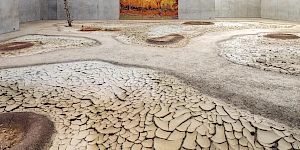
The Climate Forum is a series of online meetings hosted by HDK-Valand within L’Internationale’s Museum of the Commons programme. The series builds upon earlier research resulting in the (2022) book Climate: Our Right to Breathe and reaches toward emerging change practices.
-
HDK-Valand
Climate Forum I
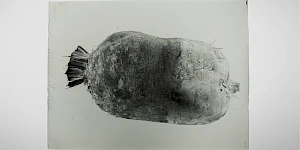
The Climate Forum is a space of dialogue and exchange with respect to the concrete operational practices being implemented within the art field in response to climate change and ecological degradation. This is the first in a series of meetings hosted by HDK-Valand within L'Internationale's Museum of the Commons programme.
-
–Van Abbemuseum
The Soils Project
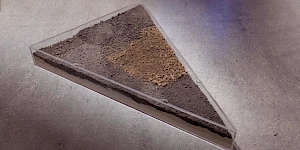
‘The Soils Project’ is part of an eponymous, long-term research initiative involving TarraWarra Museum of Art (Wurundjeri Country, Australia), the Van Abbemuseum (Eindhoven, Netherlands) and Struggles for Sovereignty, a collective based in Yogyakarta, Indonesia. It works through specific and situated practices that consider soil, as both metaphor and matter.
Seeking and facilitating opportunities to listen to diverse voices and perspectives around notions of caring for land, soil and sovereign territories, the project has been in development since 2018. An international collaboration between three organisations, and several artists, curators, writers and activists, it has manifested in various iterations over several years. The group exhibition ‘Soils’ at the Van Abbemuseum is part of Museum of the Commons. -
–Museo Reina Sofia
Sustainable Art Production
The Studies Center of Museo Reina Sofía will publish an open call for four residencies of artistic practice for projects that address the emergencies and challenges derived from the climate crisis such as food sovereignty, architecture and sustainability, communal practices, diasporas and exiles or ecological and political sustainability, among others.
-
–tranzit.ro
Non-Western Technologies for the Good Life
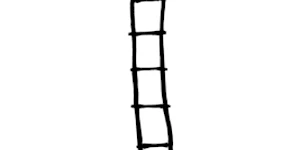
The experimental course ‘Non-Western Technologies for the Good Life’ (November 2023–May 2024) celebrates as its starting point the anniversary of 50 years since the publication of Tools for Conviviality, considering that Ivan Illich’s call is as relevant as ever.
-
–Moderna galerijaZRC SAZU
Open Call – Summer School: Our Many Easts
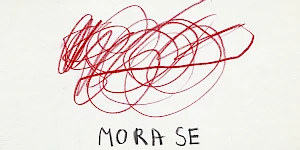
Our Many Easts summer school takes place in Ljubljana 24–30 August and the application deadline is 15 March. Courses will be held in English and cover topics such as the legacy of the Eastern European avant-gardes, archives as tools of emancipation, the new “non-aligned” networks, art in times of conflict and war, ecology and the environment.
-
–Institute of Radical Imagination
Gathering into the Maelstrom
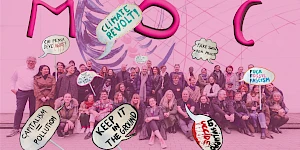
‘Gathering into the Maelstrom’ in Venice at Sale Docks is a four-day programme curated by Institute of Radical Imagination (IRI) and Sale Docks.
-
–Institute of Radical Imagination
Gathering into the Maelstrom (exhibition)
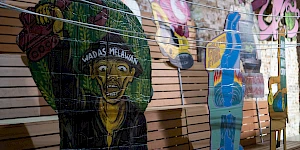
‘Gathering into the Maelstrom’ is curated by Institute of Radical Imagination and Sale Docks within the framework of Museum of the Commons.
-
–M HKA
The Lives of Animals
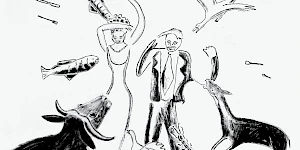
‘The Lives of Animals’ is a group exhibition at M HKA that looks at the subject of animals from the perspective of the visual arts.
-
–SALT
Warm Earth Sounds for Plants and the People Who Love Them

‘Warm Earth Sounds for Plants and the People Who Love Them’ is a series of sound installations by Özcan Ertek, Fulya Uçanok, Ömer Sarıgedik, Zeynep Ayşe Hatipoğlu, and Passepartout Duo, presented at Salt in Istanbul.
-
–SALT
Sound of Green

‘Warm Earth Sounds for Plants and the People Who Love Them’ at Salt in Istanbul begins on 5 June, World Environment Day, with Özcan Ertek’s installation ‘Sound of Green’.
-
–Museo Reina Sofia
Open Call: Research Residencies
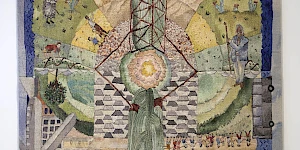
The Centro de Estudios of Museo Reina Sofía releases its open call for research residencies as part of the climate thread within the Museum of the Commons programme.
-
HDK-Valand
Climate Forum II
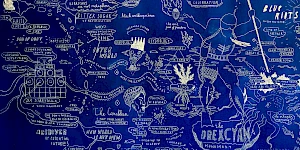
The Climate Forum is a series of online meetings hosted by HDK-Valand within L’Internationale’s Museum of the Commons programme. The series builds upon earlier research resulting in the (2022) book Climate: Our Right to Breathe and reaches toward emerging change practices.
-
–M HKA
The Geopolitics of Infrastructure

The exhibition The Geopolitics of Infrastructure presents the work of a generation of artists bringing contemporary perspectives on the particular topicality of infrastructure in a transnational, geopolitical context.
-
–MACBAMuseo Reina Sofia
School of Common Knowledge 2025
The second iteration of the School of Common Knowledge will bring together international participants, faculty from the confederation and situated organisations in Barcelona and Madrid.
-
–SALT
The Lives of Animals, Salt edition

‘The Lives of Animals’ is a group exhibition at Salt that looks at the subject of animals from the perspective of the visual arts.
-
–SALT
Plant(ing) Entanglements

The series of sound installations Warm Earth Sounds for Plants and the People Who Love Them ends with Fulya Uçanok’s sound installation Plant(ing) Entanglements.
-
–Museo Reina Sofia
Sustainable Art Production. Research Residencies
The projects selected in the first call of the Sustainable Art Practice research residencies are A hores d'ara. Experiences and memory of the defense of the Huerta valenciana through its archive by the group of researchers Anaïs Florin, Natalia Castellano and Alba Herrero; and Fundamental Errors by the filmmaker and architect Mauricio Freyre.
Related contributions and publications
-
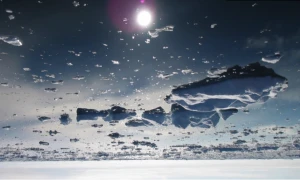
Climate Forum II – Readings
Nkule Mabaso, Nick AikensThe Climate ForumClimateHDK-Valand -
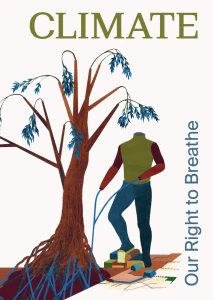
Climate: Our Right to Breathe
ClimateThe Climate Forum -
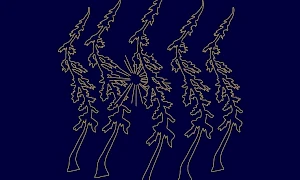
Depression
Gargi BhattacharyyaThe Climate ForumClimate -
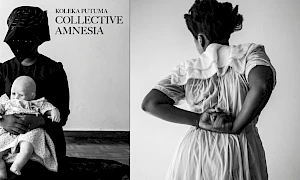
Graduation
Koleka PutumaThe Climate ForumClimate -
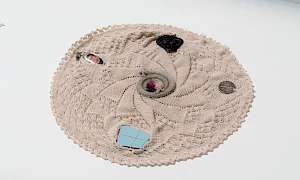
Decolonial aesthesis: weaving each other
Charles Esche, Rolando Vázquez, Teresa Cos RebolloThe Soils ProjectClimateVan Abbemuseum -
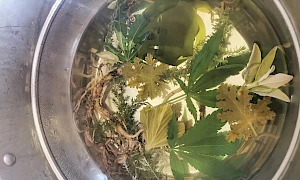
Climate Forum I – Readings
Nkule MabasoThe Climate ForumClimateHDK-ValandEN es -
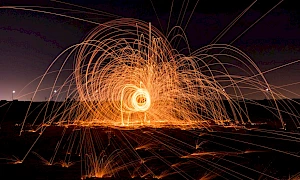
…and the Earth along. Tales about the making, remaking and unmaking of the world.
Martin Pogačar... and the Earth alongClimatePast in the Present -
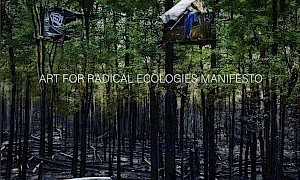
Art for Radical Ecologies Manifesto
Institute of Radical ImaginationArt for Radical Ecologies ManifestoClimateInstitute of Radical Imagination -
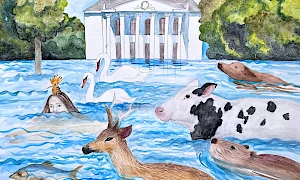
Pollution as a Weapon of War
Svitlana MatviyenkoClimate -
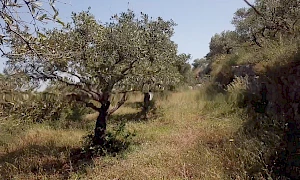
A Letter Inside a Letter: How Labor Appears and Disappears
Marwa ArsaniosThe Climate ForumClimate -
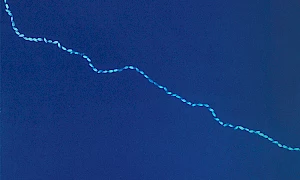
Seeds Shall Set Us Free II
Munem WasifThe Climate ForumClimate -
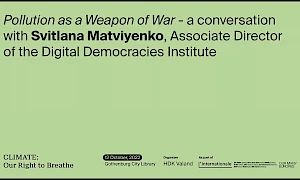
Pollution as a Weapon of War – a conversation with Svitlana Matviyenko
Svitlana MatviyenkoClimateClimate book launchHDK-Valand -
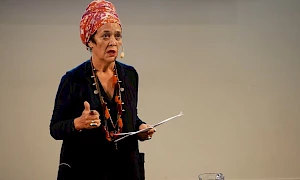
Françoise Vergès – Breathing: A Revolutionary Act
Françoise VergèsClimateClimate book launchHDK-Valand -
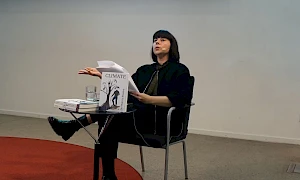
Ana Teixeira Pinto – Fire and Fuel: Energy and Chronopolitical Allegory
Ana Teixeira PintoClimateClimate book launchHDK-Valand -
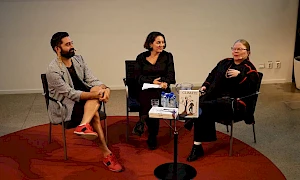
Watery Histories – a conversation between artists Katarina Pirak Sikku and Léuli Eshrāghi
Léuli Eshrāghi, Katarina Pirak SikkuClimateClimate book launchHDK-Valand -

Indra's Web
Vandana Singh... and the Earth alongPast in the PresentClimateZRC SAZU -
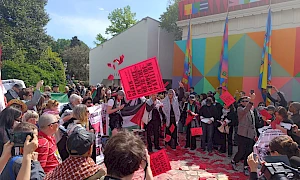
One Day, Freedom Will Be
Françoise Vergès, Maddalena FragnitoArt for Radical Ecologies ManifestoTowards Collective Study in Times of EmergencyInstitute of Radical ImaginationClimate -
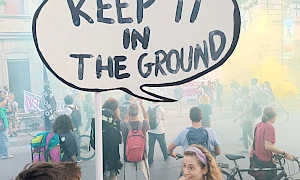
Art and Materialisms: At the intersection of New Materialisms and Operaismo
Emanuele BragaArt for Radical Ecologies ManifestoInstitute of Radical ImaginationClimate -
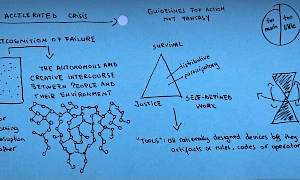
Dispatch: Harvesting Non-Western Epistemologies (ongoing)
Adelina LuftClimatetranzit.ro -
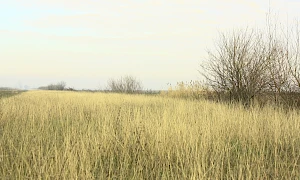
Dispatch: Practicing Conviviality
Ana BarbuClimatetranzit.ro -
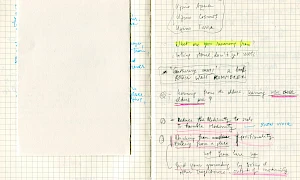
Dispatch: Notes on Separation and Conviviality
Raluca PopaSituated OrganizationsClimatetranzit.ro -
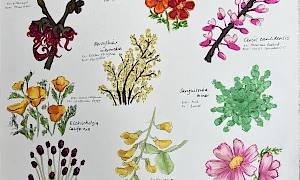
Dispatch: The Arrow of Time
Catherine MorlandClimatetranzit.ro -
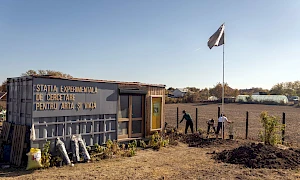
To Build an Ecological Art Institution: The Experimental Station for Research on Art and Life
Ovidiu Ţichindeleanu, Raluca VoineaArt for Radical Ecologies ManifestoClimateSituated Organizationstranzit.ro -
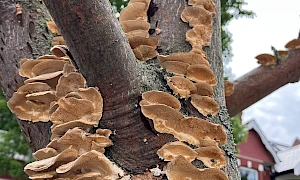
Dispatch: A Shared Dialogue
Irina Botea Bucan, Jon DeanClimatetranzit.ro -
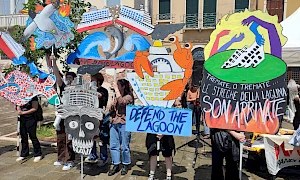
Art, Radical Ecologies and Class Composition: On the possible alliance between historical and new materialisms
Marco BaravalleArt for Radical Ecologies ManifestoInstitute of Radical ImaginationClimate -
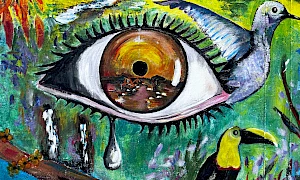
‘Territorios en resistencia’, Artistic Perspectives from Latin America
Rosa Jijón & Francesco Martone (A4C), Sofía Acosta Varea, Boloh Miranda Izquierdo, Anamaría GarzónArt for Radical Ecologies ManifestoClimateInstitute of Radical Imagination -
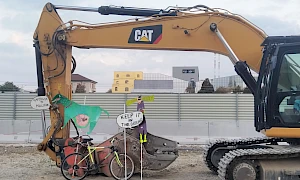
Unhinging the Dual Machine: The Politics of Radical Kinship for a Different Art Ecology
Federica TimetoArt for Radical Ecologies ManifestoInstitute of Radical ImaginationClimate -
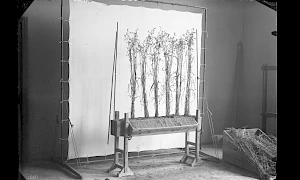
Cultivating Abundance
Åsa SonjasdotterThe Climate ForumClimatePast in the Present -
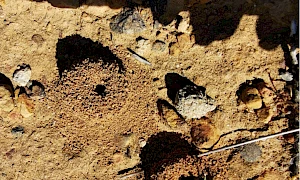
Eating clay is not an eating disorder
Zayaan KhanThe Climate ForumRecette. Reset. Recipes in and Beyond the InstitutionClimatePast in the Present -
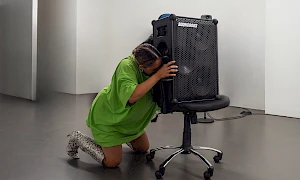
Climate Forum III – Readings
Yolande Zola Zoli van der HeideThe Climate ForumClimate -
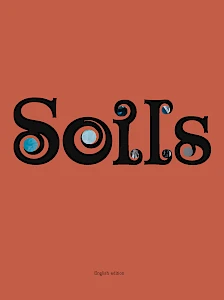
Soils
The Soils ProjectClimateVan Abbemuseum -
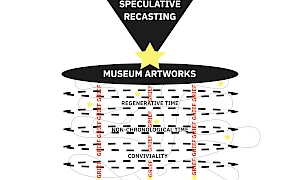
Dispatch: There is grief, but there is also life
Cathryn KlastoThe Climate ForumClimate -
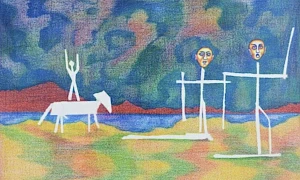
Beyond Distorted Realities: Palestine, Magical Realism and Climate Fiction
Sanabel Abdel RahmanTowards Collective Study in Times of EmergencyPast in the PresentClimate -
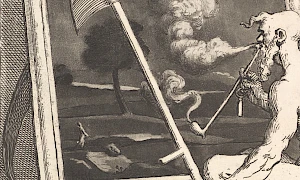
Dispatch: Care Work is Grief Work
Abril Cisneros RamírezThe Climate ForumClimate -
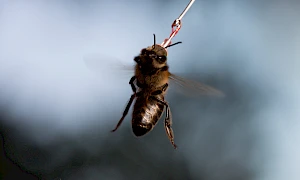
Reading List: Lives of Animals
Joanna ZielińskaClimateM HKA -

Sonic Room: Translating Animals
Joanna Zielińska... and the Earth alongClimate -
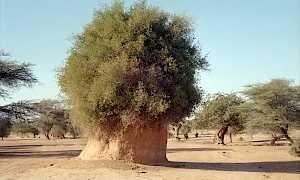
Encounters with Ecologies of the Savannah – Aadaajii laɗɗe
Katia Golovko... and the Earth alongClimate